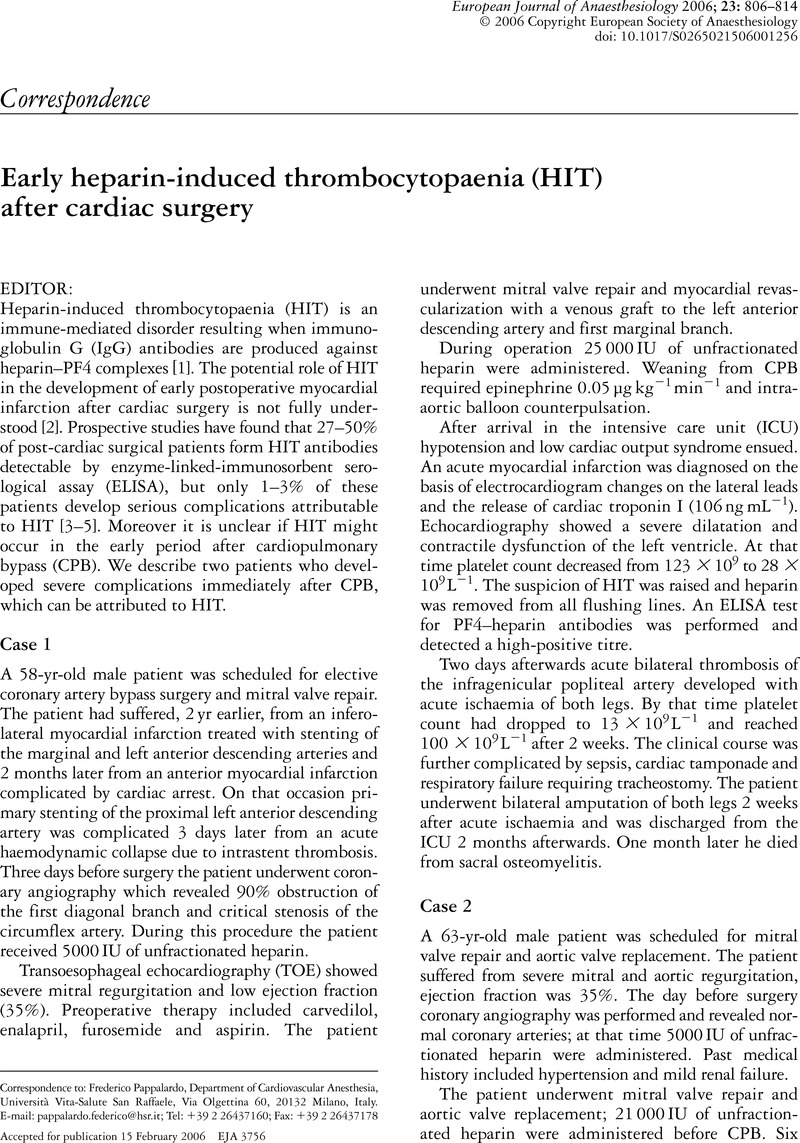Crossref Citations
This article has been cited by the following publications. This list is generated based on data provided by Crossref.
Roig, Jorge
Marqués, Jordi
Miralles, Joan Carles
and
Canturri, Elisa
2007.
What Is New in Legionella Management?.
Clinical Pulmonary Medicine,
Vol. 14,
Issue. 6,
p.
321.
Pedro-Botet, M Luisa
and
Yu, Victor L
2009.
Treatment strategies forLegionellainfection.
Expert Opinion on Pharmacotherapy,
Vol. 10,
Issue. 7,
p.
1109.
EDELSTEIN, PAUL H.
and
CIANCIOTTO, NICHOLAS P.
2010.
Mandell, Douglas, and Bennett's Principles and Practice of Infectious Diseases.
p.
2969.
Frustaci, Andrea
2010.
Cytopathic pathways of enteroviral myocardial infection.
European Heart Journal,
Vol. 31,
Issue. 6,
p.
637.
Venteo, L.
Bourlet, T.
Renois, F.
Douche-Aourik, F.
Mosnier, J.-F.
Lorain De la Grand Maison, G.
Pluot, M.
Pozzetto, B.
and
Andreoletti, L.
2010.
Enterovirus-related activation of the cardiomyocyte mitochondrial apoptotic pathway in patients with acute myocarditis.
European Heart Journal,
Vol. 31,
Issue. 6,
p.
728.
Schaeffer, E.
Plancade, D.
Nadaud, J.
Gagnon, N.
and
Favier, J.-C.
2011.
Myocardite aiguë à légionnelle : un diagnostic difficile.
Annales Françaises d'Anesthésie et de Réanimation,
Vol. 30,
Issue. 11,
p.
856.
Chitasombat, Maria N.
Ratchatanawin, Natta
and
Visessiri, Yingluck
2018.
Disseminated extrapulmonary Legionella pneumophila infection presenting with panniculitis: case report and literature review.
BMC Infectious Diseases,
Vol. 18,
Issue. 1,
Jendrek, Sebastian
Lai, Xin
Riemekasten, Gabriela
Vera-González, Julio
Schmeck, Bernd
and
Bertrams, Wilhelm
2021.
Systems Medicine.
p.
581.
Trousil, Jiří
Frgelecová, Lucia
Kubíčková, Pavla
Řeháková, Kristína
Drašar, Vladimír
Matějková, Jana
Štěpánek, Petr
and
Pavliš, Oto
2022.
Acute Pneumonia Caused by Clinically Isolated Legionella pneumophila Sg 1, ST 62: Host Responses and Pathologies in Mice.
Microorganisms,
Vol. 10,
Issue. 1,
p.
179.



